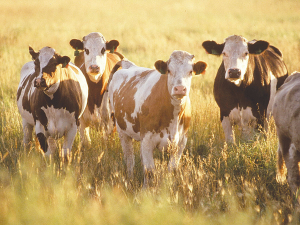Editorial: Happy days
OPINION: The year has started positively for New Zealand dairy farmers and things are likely to get better.
 MPI is continuing its investigation into how the new strain of M. bovis, known as strain 29, got into a herd in Canterbury.
MPI is continuing its investigation into how the new strain of M. bovis, known as strain 29, got into a herd in Canterbury.
The Ministry for Primary Industries (MPI) has confirmed that the herd of Canterbury cows found with a new strain of Mycoplasma bovis will be culled.
MPI’s M. bovis programme director Simon Andrew says his organisation is working with the farmer to determine a convenient time for the herd to go. He says the farmer and his family are being very cooperative at this difficult time.
“There is a programme whereby we provide pastoral support for the farmers and their family and community,” Andrew told Rural News.
“That’s why we have good relationships with our partners such as DairyNZ and B+LNZ and we have got an independent group that supports farmers when in putting compensation claims through as well. Then we have got the Rural Support Trust in there as well providing support,” he says.
Andrew says MPI is continuing its investigation into how the new strain of M. bovis, known as strain 29, got into the herd. He says they are looking at a number of pathways it might have taken into NZ and onto the property, including farm machinery, frozen semen and embryos. MPI wants to get a clear understanding of what has happened and will continue their extensive testing programme.
He says in addition to the testing on the affected farm they have a rigorous ongoing testing programme that they do nationally and have got confidence that, with this and the traceability work, they will be able to identify any new risks.
Andrew says every commercial dairy farm in the country is tested fortnightly through the bulk tank milk surveillance programme and other targeted testing.
“There is no evidence of this strain being found anywhere else, but it is important that we continue to do the testing. We are in a very different place to where we were when M. bovis first came into the country. We have a significant testing programme, technical and operational capability and experience in dealing with it,” he says.
Andrew says a number of actions have been taken in recent times to mitigate the risk of the disease going unchecked. He says new import health standards have been introduced to deal with frozen semen and that will reduce risk.
“We will just continue to do the investigation and we have to be openminded that it might be difficult to identify a categorical link to the new strain. But it’s important to note that all the respective pathways are incredibly low risk,” he says.
He says they will continue to seek advice from technical experts in NZ and overseas, but points out than many overseas countries are very interested in the work that MPI is doing here.
Coming in at a year-end total at 3088 units, a rise of around 10% over the 2806 total for 2024, the signs are that the New Zealand farm machinery industry is turning the corner after a difficult couple of years.
New Zealand's animal health industry has a new tool addressing a long-standing sustainability issue.
The Government has announced that ACC will be a sponsor of this year's FMG Young Farmer of the Year competition.
As veterinary student numbers grow to help address New Zealand's national workforce shortge, Massey University's School of Veterinary Science is inviting more veterinary practices to partner in training the next generation of vets.
South Island dairy farmers will soon be able to supply organic milk to Fonterra.
Norwood has announced the opening of a new Tasman dealership at Richmond near Nelson next month.